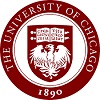Job Description
Social scientists increasingly have access to data sets of unparalleled scope and complexity. New technologies have made the collection of that data – by governments, private companies, or innovative researchers – possible. Advances in computer science and statistics have allowed for inferential, simulated, and visual analyses that are now being incorporated into faculty research. With access to the full resources and faculty of the University of Chicago, in a small cohort that is faculty-mentored and assisted by doctoral “preceptors,” students in this two-year program are trained as a colleague and contributor for the next great wave of social science research.
Our two-year Masters in Computational Social Science (MACSS) program draws on some of the latest innovations in machine learning, statistical inference, and Big Data analysis to answer fundamental questions about our social world.
The program was created in response to a growing need to incorporate digital technologies into social science research. Social scientists in the digital age can answer questions, collect observations, and conduct experiments at scales that were previously impossible using traditional research methods. At the same time, computational advances in AI and machine learning are increasingly influential in everyday social life – making an interdisciplinary dialogue between the computational and social sciences essential. Our commitment to this interdisciplinary dialogue is reflected both in the variety of backgrounds in our cohorts, as well as our diverse curriculum.
The MACSS curriculum provides students with solid foundations in data science and programming while fostering student-tailored research interests in the social sciences. Our students acquire the knowledge, skills, and expertise to innovate in and across social science fields. The program’s combination of computational tools and experience conducting social scientific research distinguishes our students and alumni from traditional data science programs.
Our 1st year cohort typically consists of 40 to 60 students with disciplinary backgrounds spanning the social, physical, and natural sciences. We have had students coming from fields as diverse as sociology, psychology, political science, philosophy, mathematics, physics, computer science, and engineering.
All students earn a degree in computational social science. The only formal concentration is in Economics, and students are only admitted to this concentration at the time of application to MACSS. Many students end up taking specialized coursework in specific disciplines (e.g., economics, sociology, psychology, political science), however this is based on your research interests and the skills and methods you seek to utilize in your work. We encourage students to take courses across a range of departments and professional schools. MACSS is listed as a STEM designated degree by the U.S. Department of Homeland Security for the purposes of the STEM OPT extension allowing eligible students to apply. However, approval for STEM OPT is at the discretion of U.S. Citizenship & Immigration Services.


